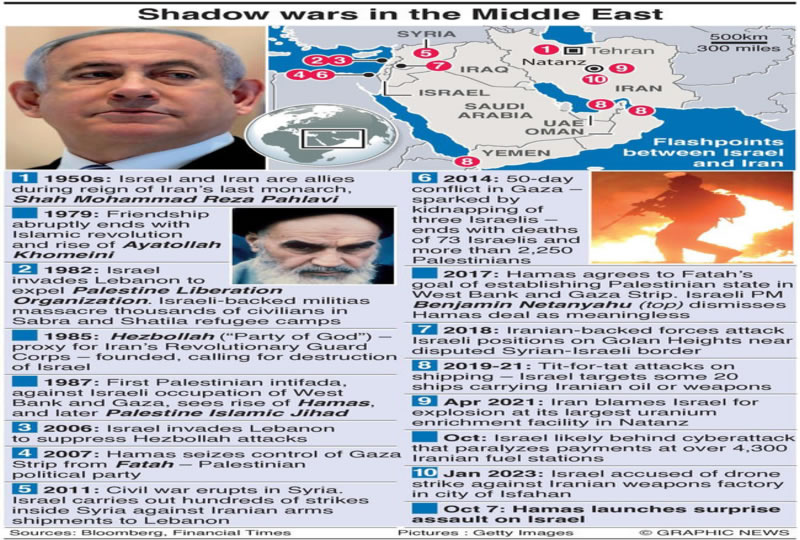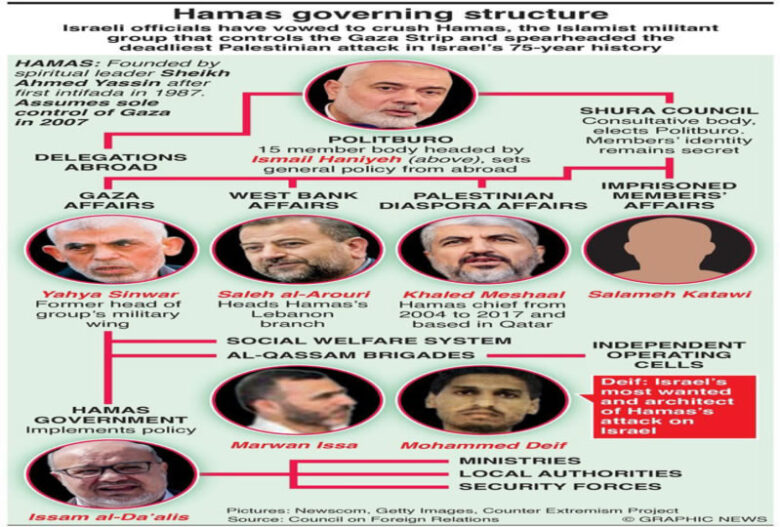The recent escalation of the Palestine-Israel conflict has once again brought international attention to the deeply-rooted complexities of the Middle East. In the midst of this crisis, the BRICS nations, comprising Brazil, Russia, India, China, and South Africa, have expressed their sentiments on the situation, with a notable disapproval of the United States’ support for Israel’s actions in Gaza.
By looking into the stances of these nations, we explore their unique diplomatic challenges and approaches to this sensitive issue.

Brazil has found itself in a precarious position, torn between its relationships with both the United States and China. Brazil supported the United Nations resolution calling for a cessation of violence in Gaza, reflecting its commitment to peace and stability. However, Brazil stopped short of explicitly condemning the US or Israel, opting for a more nuanced stance. This delicate approach is rooted in Brazil’s aspirations to maintain its status as a regional leader in Latin America while simultaneously fostering strong ties with global superpowers. The nation’s stance signals a diplomatic balancing act aimed at safeguarding its own interests and regional leadership.

In stark contrast to Brazil’s approach, Russia has been vocal in its opposition to the United States’ “one-sided” support of Israel in the conflict. Russia’s call for an immediate end to hostilities reflects not only its critique of US foreign policy but also its strategic partnership with China within the BRICS alliance. Russia has a vested interest in the Middle East and is a staunch supporter of the Palestinian cause. This principled stand underscores Russia’s determination to challenge the United States’ global hegemony and promote a multipolar world order through the BRICS platform.

Russia’s foreign ministry said that a strike on a hospital in Gaza that killed hundreds of Palestinians was a shocking crime, adding that Israel should provide satellite images to prove that it was not involved in the attack.

India, with its complex web of international relations, expressed “deep concern” over the Gaza situation. India enjoys a historical friendship with Israel and a strategic partnership with the United States. Simultaneously, it values its ties with the Arab world and the Muslim community and is wary of China’s growing influence in the region. India’s call for restraint and avoidance of escalation serves as a testament to its nuanced and pragmatic diplomacy, emphasizing its commitment to maintaining a balanced approach in a region characterized by volatility.
China, another key member of BRICS, took a bold stance by blaming the United States for its “biased” position on Israel and accusing it of undermining international order and peace. China’s critique is in line with its overarching strategy to challenge US hegemony and establish a multipolar world order through the BRICS alliance. China’s unwavering support for the Palestinian cause and its humanitarian aid to Gaza are demonstrative of its efforts to carve a distinct path in international relations. On October 19, 2023, the Chinese president said Beijing was willing to work with Arab governments for a lasting solution to the conflict. He also said a ceasefire was “imperative” as soon as possible to prevent the conflict from expanding.
South Africa, a nation with a history of anti-apartheid struggle and solidarity with oppressed people worldwide, has unequivocally denounced the United States for its “unconditional” support of Israel. South Africa calls for an immediate ceasefire and advocates for a two-state solution in Gaza. The nation sees itself as a representative of Africa and the global South within the BRICS alliance, championing a stance that aligns with its principles and its commitment to the world’s marginalized populations.
The BRICS nations’ reactions to the US support for Israel’s invasion of Gaza reflect a complex interplay of diplomatic, strategic, and moral considerations. The ongoing conflict has killed more than 4,000 people on both sides, with at least 471 Palestinians killed in a blast on the Al-Ahli Arabi Baptist Hospital in the Gaza Strip on Tuesday night. Meanwhile, the world continues to react to the development of the conflict.
German police were injured as the Gaza conflict “escalated on Berlin streets”, with dozens of police officers injured in clashes with pro-Palestinian protesters. The German Chancellor told authorities to shut down rallies if anti-Semitic slogans are likely to be shouted and “people’s deaths will be glorified”.
Machinery to repair roads has been sent through the Rafah border crossing from Egypt into the Gaza Strip in preparation for the delivery of some of the aid stockpiled in Egypt’s Sinai Peninsula, two security sources said on Thursday.
Liverpool and Egypt football star Mohamed Salah called for humanitarian aid to be allowed into Gaza. He pleaded for an end to “massacres” in the conflict between Israel and the Palestinian militant group Hamas.
View this post on Instagram
Egypt’s President Abdel Fattah al-Sisi said that Egyptians in their millions would reject the forced displacement of Palestinians into Sinai, adding that any such move would turn the peninsula into a base for attacks against Israel.
Xinhua reported that Algeria has suspended all government-sponsored sports and cultural activities to show solidarity with the Palestinians in the Gaza Strip, who are now subjected to Israeli airstrikes and siege.
The Algerian Ministry of Youth and Sports made the decision “in support of the resilient Palestinian people” and “in honour of the victims in the Gaza Strip,” the state-run ENTV reported.
The United Nations Middle East peace envoy warned the Security Council on Wednesday that the risk of expansion of the conflict between Israel and Hamas Palestinian militants in the Gaza Strip is “very real, and extremely dangerous.”
The Netherlands is sending 200 service people to Cyprus to prepare for possible escalation of hostilities in the Gaza Strip, Defense Minister Kajsa Ollongren said on Wednesday.
UK Prime Minister Rishi Sunak says British intelligence services are analysing evidence to independently establish the facts about the deadly blast at a Gaza hospital. Sunak added that people should not rush to judgments.
Iranian Foreign Minister Hossein Amirabdollahian said members of the Organisation of Islamic Cooperation (OIC) should impose an oil embargo and other sanctions on Israel and expel all Israeli ambassadors.
Amirabdollahian made the call during an urgent meeting of the OIC that is taking place in the Saudi city of Jeddah to discuss the escalating Israeli-Palestinian war.
The WHO chief stated that the situation in Gaza ‘spiralling out of control’.
“The situation in #Gaza is spiralling out of control,” the head of the World Health Organization (WHO) Tedros Adhanom Ghebreyesus said on X, formerly Twitter. “We need violence on all sides to stop.”
United Nations General Assembly (Unga) President Dennis Francis on Monday called for the release of hostages taken from Israel and providing uninterrupted access of civilians to humanitarian aid in Gaza.
According to the United Nations, 123,000 people have been displaced in the Gaza Strip since the start of the escalation.
YOU MAY ALSO READ ON PRUDENCE JOURNAL
Peter Obi’s Impact on Nigeria’s 2023 Election: Paving the Way for Multi-Party Democracy
Nigeria’s Knowledge Drain: Exodus of Healthcare Professionals Hurting the Nation
REVIEW: Jagun Jagun – A Nigerian action drama showcasing the Yoruba culture
Uganda’s Ongoing Struggle for Democracy and Human Rights
Meta Ray-Ban Smart Glasses – A Blend of Style and Functionality
How South Africa’s Faith Leaders are Working Together to Solve the Nation’s Crises
Crisis Unfolds as Palestinian Hamas Launches Major Attack on Israel
Nigeria at 63: A Nation on The Edge of a Costly Strike and Independence Celebration









Got a Question?
Find us on Socials or Contact us and we’ll get back to you as soon as possible.